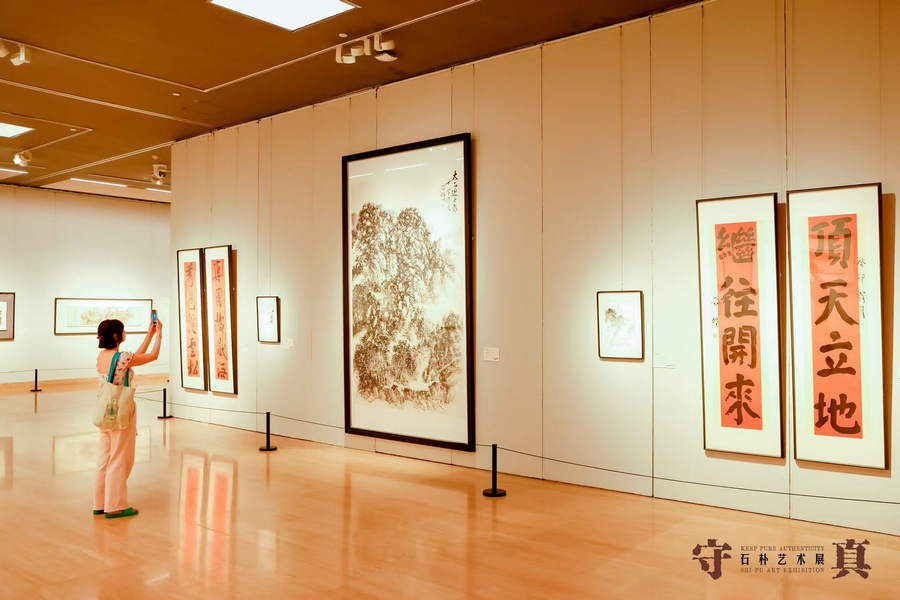Rekindling historical memory, film on Nanjing Massacre dominates China's summer box office


Dead To Rights, a film about the Nanjing Massacre during World War II, has maintained its dominance at China's summer box office, grossing over 1.5 billion yuan (about $210 million) within just 10 days of its July 25 debut.
Driven largely by the film's success, the nation's single-day box office revenue during the ongoing summer movie period from June through August hit a record 380 million yuan on Sunday, signaling a strong surge in market momentum, per data from ticketing platforms Maoyan and Beacon.
"Sunday's record box office performance has generated strong momentum for this year's film market and boosted industry confidence," said Yin Hong, vice chairman of the China Film Association and a Tsinghua University professor, in an interview with Xinhua on Monday.
The film has topped daily box office charts in all provincial-level regions across the Chinese mainland for seven consecutive days through Sunday. So far, it has attracted over 40 million admissions, reflecting its strong resonance with audiences.
Drawing on verified photographic evidence of Japanese wartime atrocities during the Nanjing Massacre, Dead To Rights tells the story of a group of Chinese civilians who seek refuge in a photography studio during the brutal occupation of Nanjing by Japanese aggressors in 1937.
In a desperate bid for survival, they are compelled to assist a Japanese military photographer in developing film, only to discover that the negatives contain damning evidence of atrocities committed by Japanese forces across the city. Determined to expose the truth, they secretly keep the negatives and risk their lives to smuggle them out to the outside world.
"In that era, photographs usually preserved life's most cherished moments. A single image could carry an entire family's memories," said director Shen Ao in an interview. Yet during the Nanjing Massacre, he added, Japanese forces weaponized photography for propaganda. "The studio in our film holds the crimes they tried to erase, which are exactly the truths that need to be exposed."
The director stressed that few people truly understand how these photographic records of Japanese wartime atrocities survived, highlighting the film's mission to depict how Chinese civilians risked their lives to preserve the damning evidence.
The film's success, said Yin, rests on its distinctive perspective, fresh narrative, empathetic characters, layered storytelling, and technical polish -- "all channeling a collective public catharsis. Both artistic merit and social relevance were essential."
Dead To Rights currently holds an 8.6 out of 10 rating on Douban, a key film review site.
"The simplicity and restraint of the storytelling make every scene piercingly poignant. The few images -- such as the knife held to a baby, the rolling heads, the red river of blood -- are more than enough to communicate the horror," observed a popular comment on Douban. The film avoids sensationalism, allowing these chilling images to speak for themselves, the comment added.
A Maoyan user recalled a touching moment after the screening, when a young girl asked her mother if there were any "post-credit scenes." The mother gently replied, "The real 'post-credit scene' begins when we step out of the cinema." The comment continued, "Indeed, the lively streets, the bustling crowds, the aroma of food in the air -- these are the true miracles." This sentiment captures the film's profound message: a call to cherish peace and vitality of modern China, all made possible by the sacrifices of the past.
Renowned director Feng Xiaoning hailed the film as "a new high point" for Chinese cinema. "When the film ended, the entire audience remained seated, unmoving, until the credits had fully rolled. Everyone was lost in deep thought," he said in a video circulated widely. "I believe every Chinese, and everyone in the world with a conscience, will be shaken by this film."
Industry analysts, including Yin, see strong growth potential for Dead To Rights. As positive word-of-mouth spreads, they believe the film could gain momentum, with early audiences now joined by viewers drawn by social engagement and peer recommendations.
"This is a film every Chinese should watch at least once," said Ming Jinwei, a Beijing-based commentator and widely followed blogger, telling Xinhua that it holds deep significance in confronting historical truths and inspiring national self-strengthening.
According to the latest projections, Dead To Rights is now expected to gross from 3.8 billion yuan to 4 billion yuan in total revenue. If achieved, it would become China's second-highest-grossing film of the year so far, trailing only the animated blockbuster Ne Zha 2.
As of Sunday, China's summer box office has reached 7 billion yuan in total earnings. Leading the pack is "Dead To Rights," followed by local comedy "The Lychee Road" with 623 million yuan and Universal's "Jurassic World Rebirth" at 555 million yuan.





































